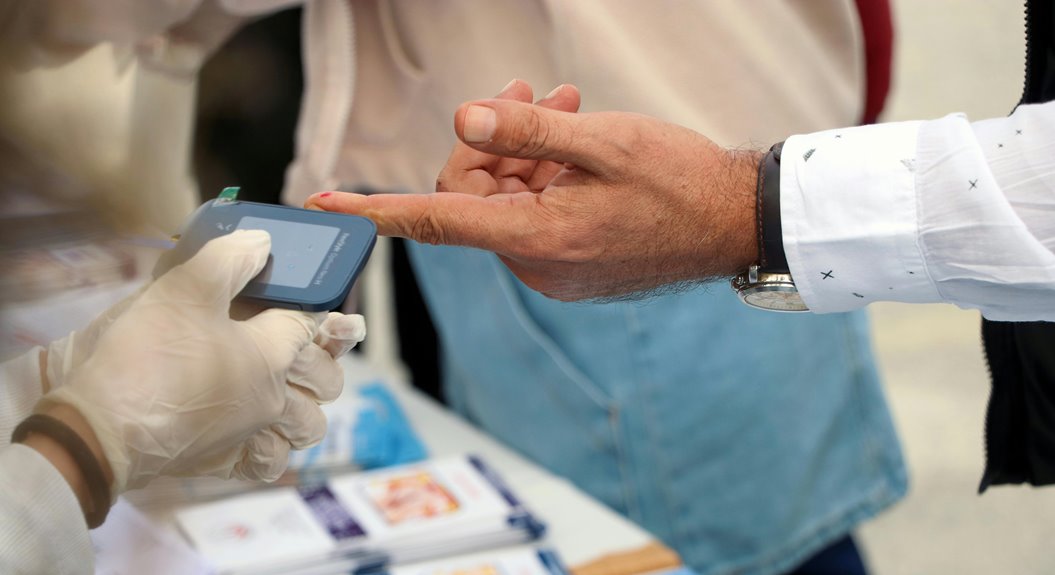You can excel on the OET Speaking test by focusing on three key areas that’ll boost your score above 350. Start by mastering medical role-play scenarios through regular practice with colleagues. Then, refine your vocabulary and pronunciation to meet Western healthcare standards while maintaining your natural warmth. Finally, adapt your communication style to emphasize patient autonomy and shared decision-making. Let’s explore the specific strategies that’ll transform your performance.
Understanding the OET Speaking Format and Grading Criteria
Success in the OET Speaking test starts with a solid grasp of its format and scoring system.
You’ll face two 20-minute role-plays via Zoom, where you’ll interact with an interlocutor who’ll assess your performance. You can take detailed notes on your role-play cards throughout the exercise. The format nuances include being recorded for evaluation by two official assessors who’ll examine both your linguistic and clinical communication skills.
The grading breakdown covers four linguistic criteria scored from 0-6 and five clinical communication criteria scored from 0-3.
To achieve a grade B (350+), you’ll need to consistently score 5 out of 6 on linguistic elements and 2 out of 3 on clinical aspects.
Common Language Challenges for Nigerian Nurses and Solutions
While mastering the OET Speaking format is foundational, let’s address the specific language hurdles you’ll face as a Nigerian nurse preparing for the exam.
Your linguistic challenges might include precise medical vocabulary usage and clear pronunciation, but don’t let these worry you. Consider taking sample role-play scenarios with colleagues to build confidence in handling different healthcare situations.
Focus on practicing with real-life scenarios and immersing yourself in medical podcasts to strengthen your communication skills.
Remember, cultural insights matter too – you’ll need to adapt your communication style for diverse patient backgrounds.
Mastering Patient-Centered Communication Skills
As you prepare for the patient-centered portion of your OET speaking test, you’ll discover that mastering effective communication goes far beyond just exchanging medical information.
The key to patient engagement lies in your ability to blend active listening with clear, empathetic responses. By using simple language, maintaining eye contact, and showing genuine interest in your patient’s concerns, you’ll naturally overcome common communication barriers.
Remember to assess your patient’s understanding, respect their cultural background, and involve them in decision-making. These skills won’t just help you ace the test – they’ll make you a better nurse.
Essential Role-Play Strategies for Nigerian Healthcare Professionals
The path to OET speaking mastery leads directly through effective role-play preparation. As a Nigerian healthcare professional, you’ll want to focus on mastering various role play scenarios that mirror real patient interactions.
Start by practicing your communication tactics with colleagues, paying special attention to clear pronunciation and empathetic responses.
You’ll find success by managing your time wisely during the 3-minute preparation period, organizing your thoughts around each task bullet point.
Remember to adapt your medical terminology based on your patient’s understanding level, just as you’d in your daily practice.
Building Cultural Competence in Western Healthcare Settings
As a Nigerian nurse preparing to work in Western healthcare settings, you’ll need to adapt to communication styles that often emphasize direct dialogue and patient autonomy.
You can bridge cultural care gaps by recognizing that Western medical practices may differ from traditional Nigerian approaches, particularly in areas like shared decision-making and individual patient preferences.
Understanding and respecting these cultural differences, while maintaining your professional expertise, will help you excel in Western healthcare environments and provide culturally sensitive care to diverse patient populations.
Western Communication Styles
Building cultural competence in Western healthcare settings starts with mastering three essential communication principles: directness, active listening, and patient-centered care.
As a Nigerian nurse, you’ll find that Western patients expect clear, straightforward communication about their health. Practice nonverbal communication skills like maintaining appropriate eye contact and using affirming gestures to show you’re engaged.
Your empathetic listening abilities will shine when you validate patients’ concerns and paraphrase their words.
Always remember that proper patient privacy standards must be maintained while documenting and discussing patient information in Western healthcare facilities.
Bridging Cultural Care Gaps
Successful integration into Western healthcare settings requires developing a deep understanding of cultural competence that goes far beyond basic awareness.
Through cultural sensitivity training and healthcare disparities awareness, you’ll learn to bridge critical gaps in patient care.
To effectively serve diverse patient populations, focus on:
- Developing culturally appropriate communication strategies that build trust
- Understanding how different cultural beliefs impact healthcare decisions
- Practicing active listening and empathy across cultural boundaries
You’ll find that mastering these skills not only improves patient outcomes but also enriches your professional growth as you provide more inclusive, compassionate care.
Patient Autonomy Understanding
The shift from Nigeria’s healthcare environment to Western medical settings brings important shifts in how patient autonomy is understood and respected.
You’ll need to adapt to a system where patient rights and informed consent are fundamental principles.
In Western healthcare, you’re expected to involve patients directly in their care decisions, explaining treatments clearly and respecting their choices – even when they differ from family preferences.
Time Management and Test Day Preparation Tips
When it comes to conquering the OET speaking test, mastering time management and preparation can make all the difference between success and stress.
You’ll want to focus on effective time allocation while maintaining calm composure throughout your test journey.
Here are key strategies to help you excel:
- Practice with timed mock tests regularly to build confidence and reduce test-day anxiety
- Develop a structured routine for each speaking task to maximize your performance
- Create a peaceful test environment and have backup plans for technical issues
Practice Resources and Study Groups for Nigerian OET Candidates
Mastering the OET speaking test becomes infinitely more manageable when you’ve got the right resources and study companions by your side.
You’ll find a wealth of study materials through OET’s official channels, including free practice tests, sample speaking scenarios, and detailed study guides that’ll boost your confidence.
Don’t go it alone – connect with other Nigerian nurses through online communities and local study groups.
You can share experiences, practice role-plays together, and learn from those who’ve already succeeded.
Remember to focus on official OET resources first, then supplement your learning with peer support and mentorship opportunities that match your schedule and learning style.
Creating a mock test schedule while balancing work commitments will help you stay on track with your OET preparation goals.
Conclusion
You’re now equipped with the essential tools to excel in your OET speaking test. Remember, success comes from consistent practice, cultural awareness, and refined communication skills. By implementing these strategies and maintaining your authentic Nigerian voice while adapting to Western healthcare contexts, you’ll be well-positioned to achieve that 350+ score. Stay confident, keep practicing, and trust in your preparation – you’ve got this!



